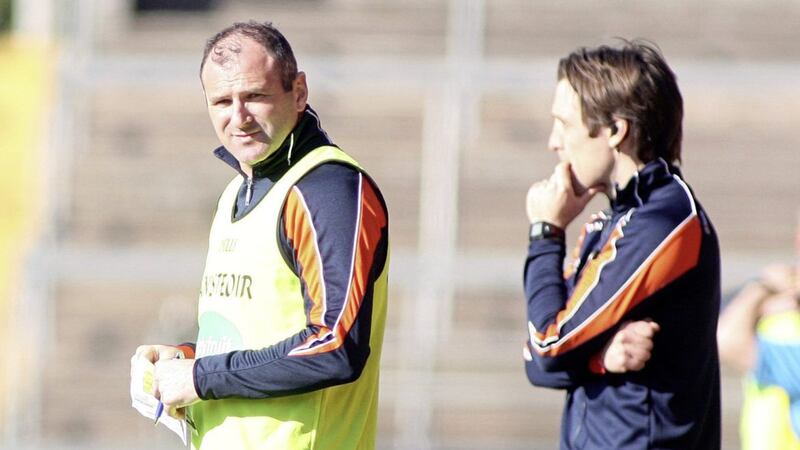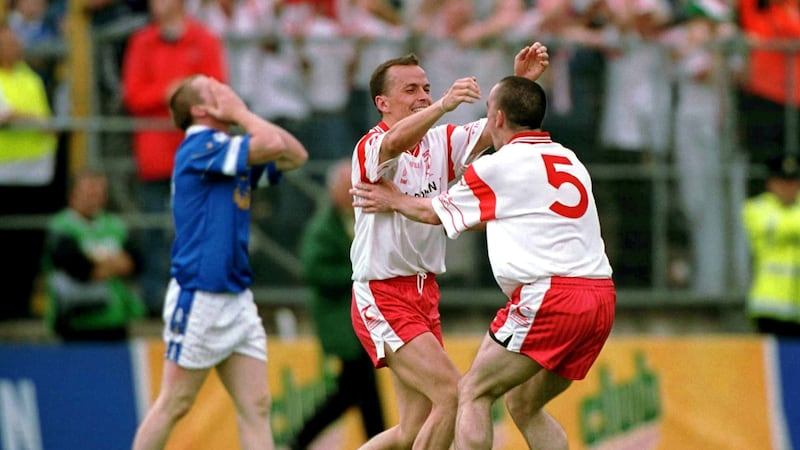FORMER Armagh ace Stevie McDonnell says it’s long overdue the GAA addressed the thorny issue of stoppage-time in games and lifted the timing burden from referees – and argued it would radically reduce incidents of players deemed to be feigning injury.
The 2002 All-Ireland winner also believes it’s time there were two referees on the field of play to help administer games more effectively.
Experienced Laois referee Maurice Deegan was in the firing line after last Saturday night’s All-Ireland Qualifier Round Three game between Mayo and Armagh in Castlebar.
Mayo sneaked home by a point and while Armagh were left kicking themselves for not taking their chances, Deegan was criticised for adding just four minutes of stoppage-time at the end of the game.
Afterwards Kieran McGeeney aimed a not so cryptic broadside at Deegan's handling of the tie when he said: "When you're infallible you never learn from your mistakes."
The Sunday Game analyst Kevin McStay compiled an analysis of the breakages in play for injuries and substitutions in the game and estimated that there should have been 10 extra minutes played instead of the allotted four.
There were six notable injuries to Mayo players in the second half that clocked seven minutes 46 seconds of stoppage-time, and that was before time was allowed for the raft of substitutions.
“Time keeping was one of the big factors in Castlebar,” said McDonnell.
“A lot more than four minutes [of stoppage-time] should have been played. Handing it over to the referee’s discretion is outdated at this stage.
“You’ve got the clock in ladies football and it works very effectively. Why not trial it? For all the rule changes that the GAA has experimented with, they have never implemented the stop clock. So why not try it?
“It eradicates the nonsense of players feigning injury to run the clock down, and referees never apply what the stoppage-time should actually be at the end of games.”
McDonnell also felt Mayo “won their frees easier compared to Armagh, particularly in the first half” – but the 2003 Player of the Year insisted the GAA is not helping their men in the middle, especially in high-stakes Championship games.
“Sometimes I don’t know what’s in a referee’s mindset when he takes to the field,” McDonnell added.
“You’re depending on a lot of things going right for you. The only thing a player can guarantee is work-rate. Referees play a vital role in the outcome of many games.
“I think a referee’s job is hard. I don’t want to be over critical of them because human error is always going to be a factor in games.
“But I would like to see two referees in games – one referee in each half. It works in International Rules – why not apply it in Gaelic football to see how it works?
“It would make a referee’s life a bit easier. I also think there has to be greater lines of communication among referees – never mind holding their hand up and putting it in the face of a player without explaining a decision.
"Now, in my time playing, Maurice Deegan was one of the better communicators, but there needs to be better communication on the field of play with referees in general, maybe with the team captains, because that way they might get more respect."



